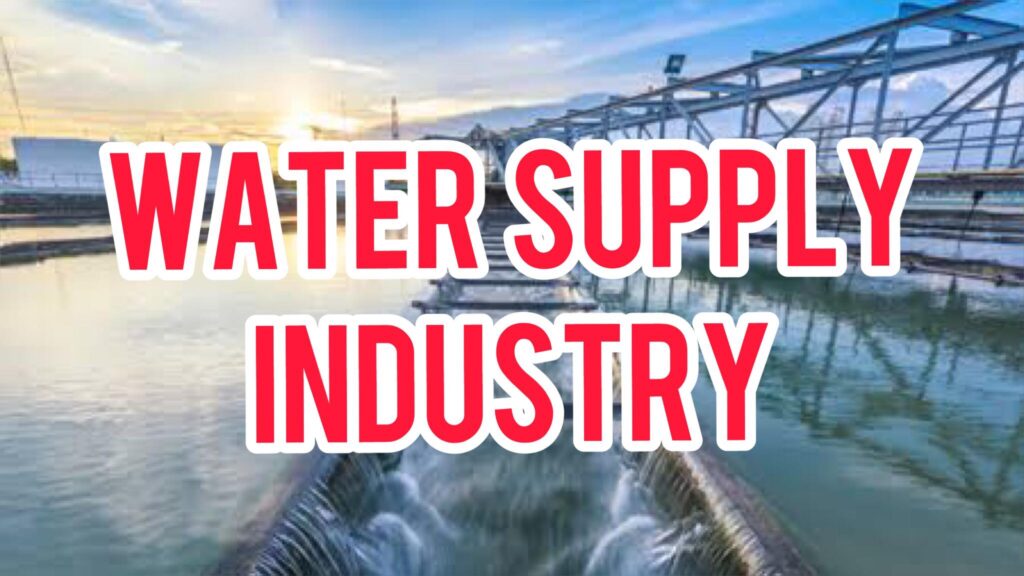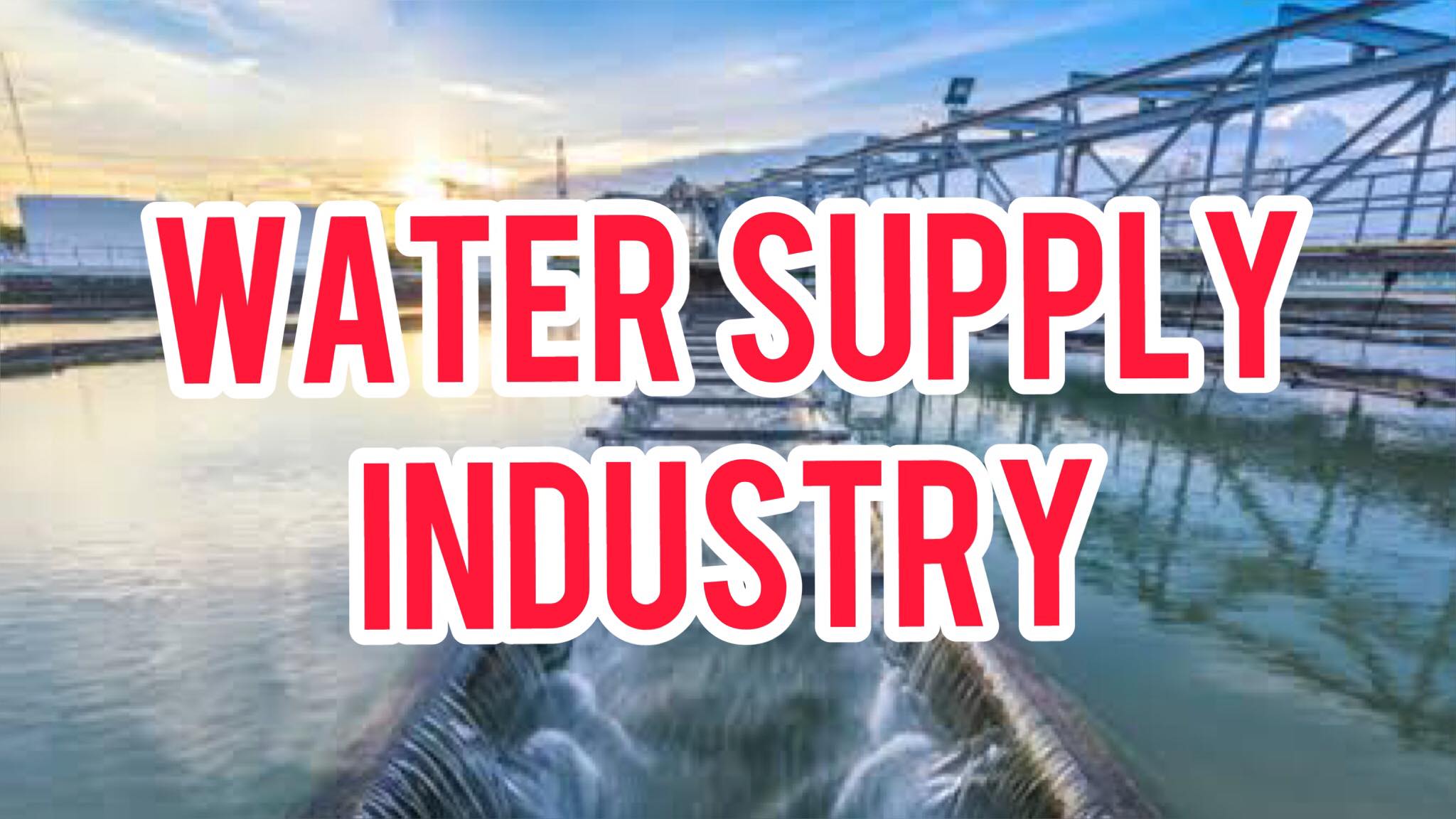
How Many Jobs Are Available In Water Supply?
Water nourishes all living things in our world and powers the intricate mechanisms that make it possible for society to function. It is the lifeblood of our planet. Water is obviously important, but the complex network that retains its supply often operates behind the scenes. There are many jobs that contribute to providing the reliable water supply we sometimes take for granted, from the magnificent engineering tasks that channel water across landscapes to the accurate analysis of its chemical composition. In this article, include an in-depth exploration of the diverse and dynamic world of water supply jobs, highlighting their importance, challenges, and the wide range of opportunities they offer.
Introduction to Water Supply Jobs
Jobs in the water supply industry cover a wide spectrum of roles that contribute to the distribution, administration, planning, and maintenance of systems that provide clean drinking water and wastewater systems. Each function—from engineers and technicians to scientists and administrators—plays an important role in making sure that the water supply network is at its best.
The Role of Engineers
The water supply sector is supported by engineers, notably civil and environmental engineers. They create sewage treatment facilities, distribution systems, and water treatment plants. These experts use their knowledge to address problems with water quality, infrastructure construction, and environmental effect.
Water Quality Specialists
Specialists in water quality keep a close eye on and evaluate the quality of our water sources, acting as vigilant guardians. They analyze samples, find pollutants, and assure adherence to high health and safety requirements using a vast array of advanced tools and methods. By stopping the spread of waterborne infections, these unsung heroes are essential to protecting the public’s health.
How Many Jobs Are Available In Water Supply?
There are over 1.2 million jobs available in water supply industry. Depending on factors such as location, population size, urbanization, industrial development, and government policies, the number of employment in the water supply industry may vary. Engineers, technicians, operators, managers, scientists, and administrators are just a few of the many jobs covered by the water supply industry. Listed below are a few jobs that are available in the water supply industry:
Also Read: How Many Jobs Are Available In Apparel
Water Treatment Plant Operator
These individuals are in charge of running water treatment facilities on a daily basis. They keep an eye on the machinery, adjust chemical dosages, and make sure that pathogens, contaminants, and impurities are successfully removed from raw water sources during the treatment process. They are essential to preserving the public’s health and the purity of the water.
Water Distribution System Operator
Operators in this position oversee the complex network of pipes, valves, and pumps that deliver purified water to people’s homes, places of business, and industries. To make sure that water reaches consumers reliably and at an appropriate pressure, they monitor water pressure, flow rates, and system performance.
Civil/Environmental Engineer
Water infrastructure projects including treatment facilities, distribution systems, and wastewater facilities are designed and planned by civil and environmental engineers. To design effective and sustainable systems, they take into factors such as population growth, water supply, and environmental impact.
Water Quality Analyst/Chemist
Water quality analysts or chemists analyze water samples in the lab to determine things like pH, turbidity, chemical composition, and microbial content. They aid in ensuring that drinking water complies with legal requirements and is suitable for human consumption.
Hydrologist
The study of the flow, distribution, and properties of water in various environments, such as rivers, lakes, groundwater systems, and watersheds, is done by hydrologists. They offer valuable details on the availability of water, the prevention of flooding, and environmental impact assessments.
Water Resource Manager
Water Resource Manager develop comprehensive plans for the prudent use and preservation of Water Resources. To guarantee a sustainable and fair distribution of water, they take into factors such as drought conditions, population growth, and ecosystem health.
Also Read: How Many Jobs Are Available In Homebuilding
Environmental Health Specialist
Specialists in environmental health monitor and enforce laws pertaining to water quality in order to avoid the spread of illnesses that are transmitted via the use of water. In order to protect communities, they look into and deal with problems related to water contamination and work with public health organizations.
Water Policy Analyst
Water policy analysts do research on and evaluate laws, regulations, and policies pertaining to water at the local, state, and federal levels. They provide suggestions for policy upgrades to solve issues including pollution, a lack of water, and other problems.
Is Water Supply a Good Career Path?
Yes, a job in water supply is a good career path. Working in the water supply industry has several benefits. It offers an opportunity to support your community as well as attractive job opportunities. Given the expanding worldwide emphasis on sustainability, environmental preservation, and efficient resource management, a career in water supply might be a very smart choice. Water is a precious resource, and maintaining adequate distribution, treatment, and availability is essential for both ecological and human health. The following are some factors that can make a career in water supply a wise choice:
Job Stability and Essential Nature
The importance of water cannot be overstated. It is a basic resource needed for all facets of human life, including drinking water and sanitary facilities as well as agriculture and industry. Within the water supply industry, job stability is a result of its intrinsic relevance. Despite economic ups and downs, there will always be a need for experts in water supply because of the continual demand for clean, safe water.
Public Health and Community Well-Being
Working in the water supply immediately affects community wellbeing and public health. For the purpose of reducing waterborne diseases and raising general quality of life, access to clean and safe drinking water is important. By ensuring that communities have access to water that complies with strict health and safety requirements, you have the chance to make a real impact.
Environmental Conservation and Sustainability
The fields of water supply and environmental conservation and sustainability interconnect. Professionals in water supply play an essential role in developing innovative approaches to solve these challenges as concerns about water scarcity and pollution grow. This might entail putting in place systems for reusing water, improving the way water is treated, and encouraging responsible water usage habits.
Technological Advancements and Innovation
Innovation and technological advancements are being embraced by the water supply industry to increase productivity, efficiency, and sustainability. The management and distribution of water are being transformed by advanced water treatment techniques, real-time monitoring systems, data analytics, and remote sensing technology. The opportunity to work with advanced technologies and contribute to their further development is available to professionals in this discipline.
Career Growth and Specialization
There are many chances for career development and specialization as the water supply industry adjusts to meet new challenges and regulatory needs. It is possible for professionals to rise into leadership positions, become subject matter experts, or take part in determining the direction of the industry by regularly updating their skills and knowledge.
Global Relevance and Opportunities
The issues associated with water supply are not limited to any one area or nation. Global challenges include issues with infrastructure development, water scarcity, and water quality. This implies that experts in the water supply industry can find opportunities work on initiatives and projects all over the world, supporting global efforts to guarantee everyone has access to clean water.
Also Read: How Many Jobs Are Available In Broadcasting
Requirements For a Career in Water Supply Industry
Building a strong academic foundation is always the first step in starting a meaningful and significant career in water supply. This path fundamentally necessitates obtaining a bachelor’s degree in an area like engineering, environmental sciences, or other closely related fields. These early educational milestones set the stage for aspiring professionals to build their skills and make a significant contribution to the complex field of water supply management.
After earning a bachelor’s degree, the quest of knowledge and skill development doesn’t end; rather, it opens the door to a wide range of opportunities for individuals looking to advance in this dynamic industry. The value of a higher degree becomes more and more clear as one wades deeper into this field. For individuals hoping to significantly contribute to the sustainable utilization, purification, and distribution of one of our planet’s most important resources, advanced degrees such as master’s or doctoral qualifications serve as stepping stones.
Conclusion
Jobs related to water supply are numerous and important, affecting every aspect of life. These roles play an essential part in maintaining our way of life, from making sure that clean and accessible drinking water is available to managing wastewater and applying latest technology. The chances for diverse and rewarding jobs in the water supply industry are expanding along with the demand for water.
FAQs
Are water supply jobs only limited to urban areas?
No, water supply jobs are essential in both urban and rural areas to ensure access to safe and clean water for all.
What education is required for a career in water supply management?
A degree in engineering, environmental science, or a similar discipline is typically required for numerous jobs in water supply management. Specialized certificates may be required for some jobs.
How can I contribute to water conservation through a water supply career?
Water supply specialists may make a difference by creating effective water distribution systems, putting in place conservation initiatives, and encouraging environmentally friendly water usage habits.
What is the future outlook for water supply jobs?
As populations rise and environmental concerns develop, there will likely be an increase in need for water supply specialists, opening up a lucrative job opportunity.
Are there opportunities for research and innovation in the water supply sector?
Undoubtedly, advancing water treatment techniques, enhancing distribution systems, and solving new water-related concerns all depend on continual research and innovation.

Sage is a financial/consumer journalist and senior editor, personal finance, of TrendsHQ. EXPERTISE: Personal Finance, Careers, Jobs, Scholarships, and Entertainment.
